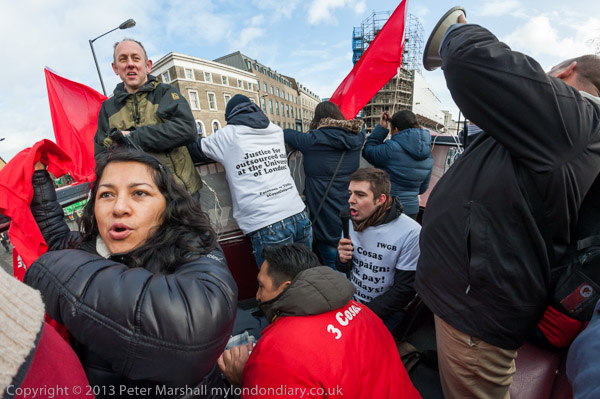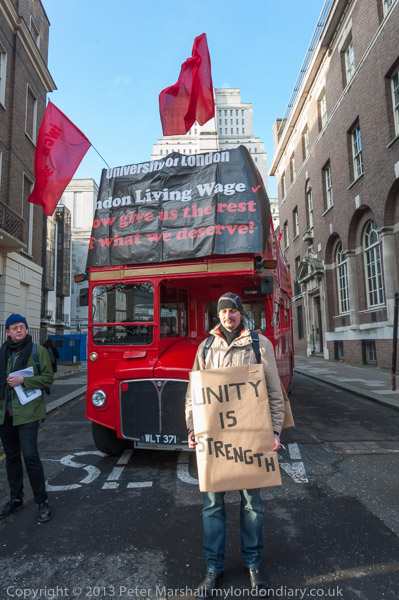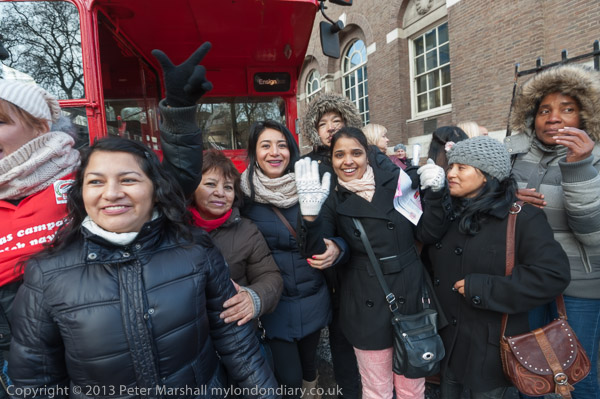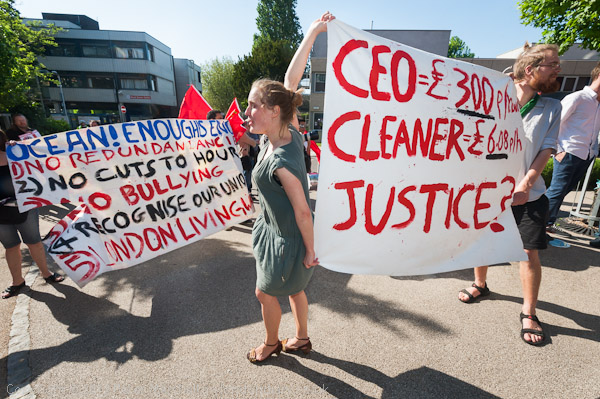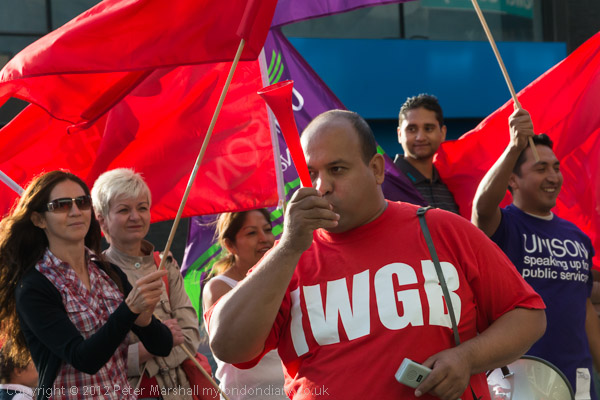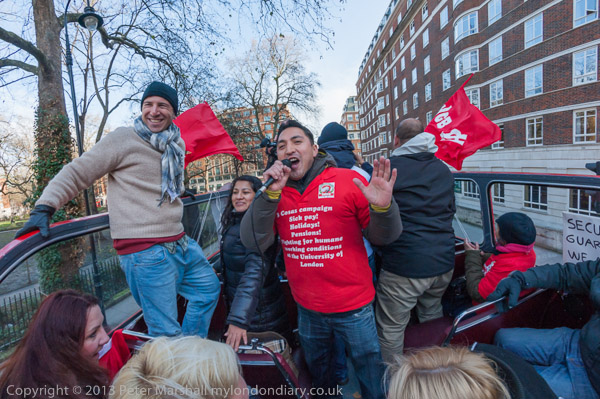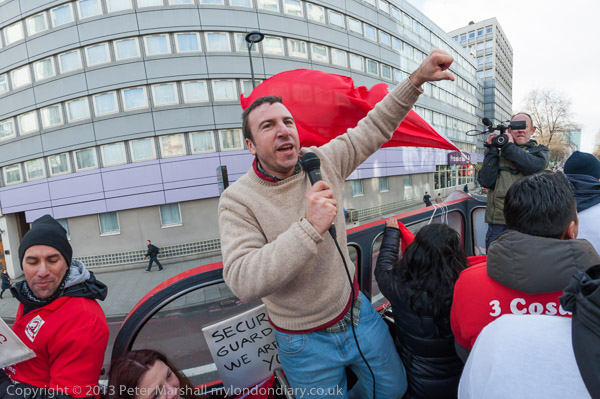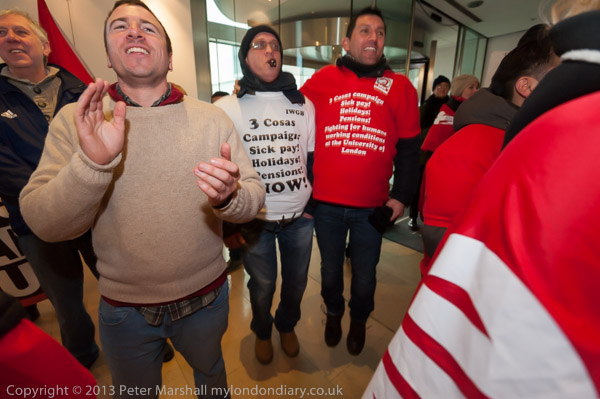On Thursday 25th January 2018 I went out to photograph one protest in the evening and found myself getting transported to another by the Independent Workers Union of Great Britain.
End Outsourcing at University of London – Senate House
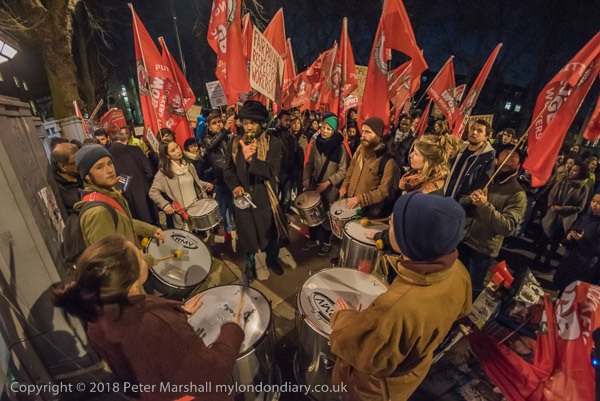
Striking security officers and receptionists from the Independent Workers Union of Great Britain picketed Senate House and were joined by supporters for a noisy rally at the gates. Cleaners, receptionists, security officers, porters and post room staff are all demanding that the university ends discriminatory employment practices and makes them all direct employees.
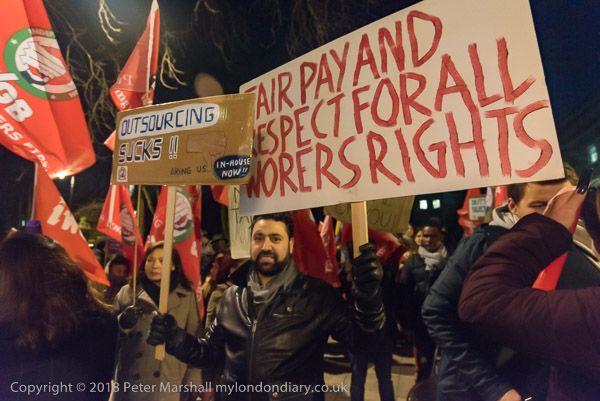
Outsourcing is a way for organisations like the University of London to get essential jobs done on the cheap by people working under terms and conditions that would be a blot on their reputations as responsible employers. They contract out the people who work in their business to contracting companies who employ them under far worse pensions, holiday entitlements, sickness entitlements, and maternity and paternity leave than in-house employees.
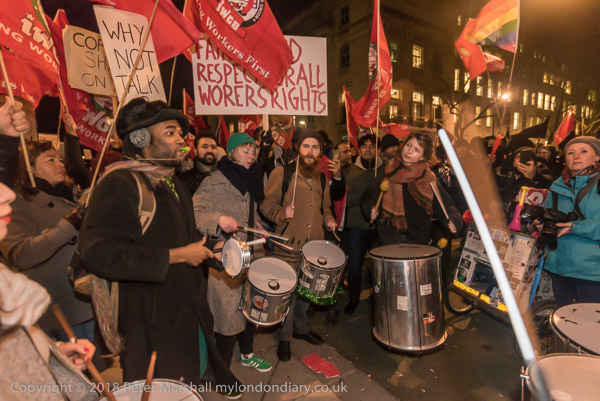
Those working at the UoL say they are often bullied and overworked and sometimes paid several months late. Many are also on zero hours contracts, which fail to offer them consistent work, and have no guarantee that they will get any work, and and can be used to further bully or punish workers, often those who are active in the unions. Following earlier protests the University is considering bringing some of the workers in-house, but they and their union, the IWGB, were insisting that all should be put onto the university payroll. The savings from outsourcing are often illusory and organisations always get better service through direct employment.
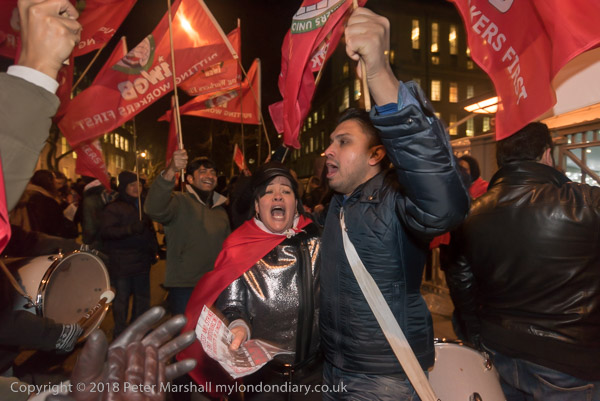
The workers had been on strike all day and had been picketing and in the early evening were joined by a large and noisy crowd of supporters, including IWGB member from other workplaces and students, including a samba band who considerably livened up the protest.
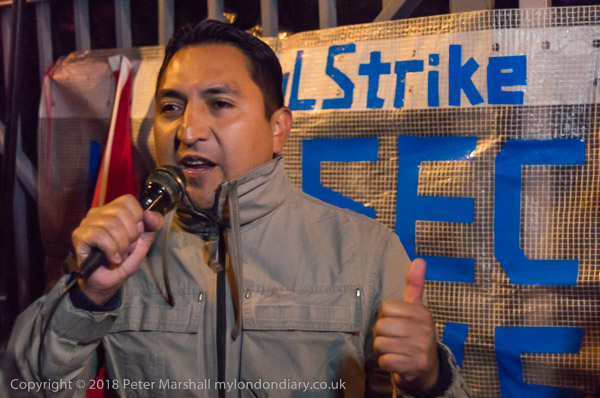
After the band had played for some time there were speeches from some leading members of the union including IWGB President Henry Chango Lopez and others who came to give support including United Voices of the World General Secretary Petros Elia. He was able to give news of another campaigning success, where after a noisy protest outside its offices by the UVW in the previous month another company had agreed to pay cleaners the London Living Wage.
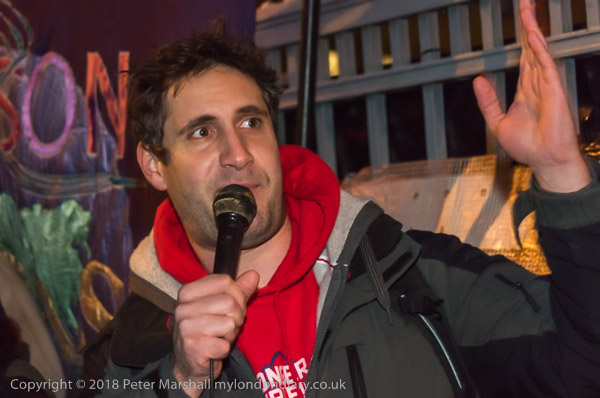
As the protest drew to an end IWGB General Secretary Jason Moyer-Lee announced that a double-decker coach had arrived and would take IWGB members and any more they could fit in to a surprise protest at another secret London location. Although I was rather cold, tired and hungry it was an opportunity I couldn’t turn down.
More at End Outsourcing at University of London.
Cleaners rush into Royal College of Music – Royal College of Music
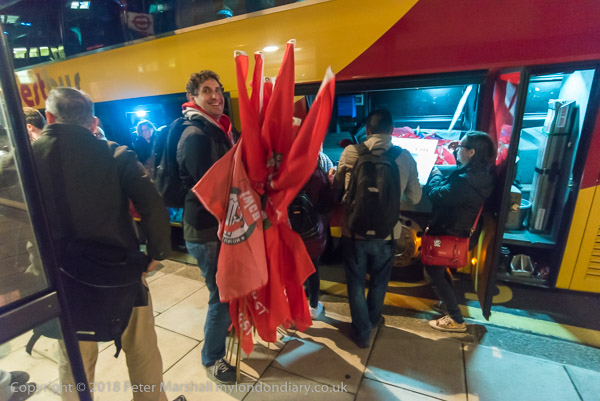
We crowded into the bus which drove off into the London rush hour, and it was soon clear we were going west. We passed the Royal Albert Hall and then turned off into a side street a short way from our destination, which turned out to be the Royal College of Music.
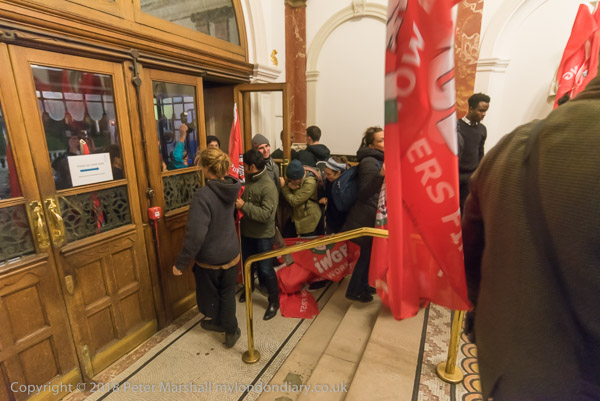
People got off and unloaded the union flags, banners and drums quietly. Then two people went a little ahead of the rest of us to hold open the doors of the RCM ready for the rest of the crowd to rush into the foyer for a surprise protest.
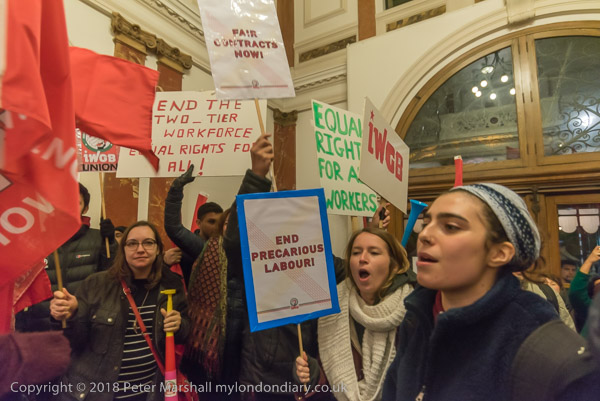
Cleaners there had recently been taken over as the RCM had agreed a new contract with a different company, Tenon FM. They had decided to unilaterally cut hours in half and change shift times, telling the cleaners they must work at times most already have other cleaning jobs, and they are now threatened with dismissal for refusing to accept the new hours.
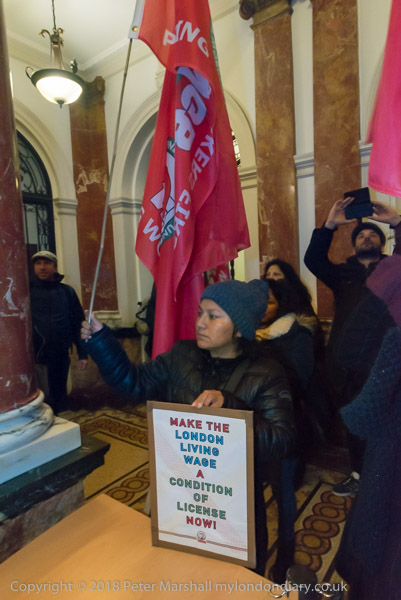
Both Tenon and the RCM were refusing to hold any discussions over the changes with the IWGB, who had because of this launched a collective grievance and balloted the cleaners for strike action; the union was also considering a legal challenge under law governing the transfer of undertakings.
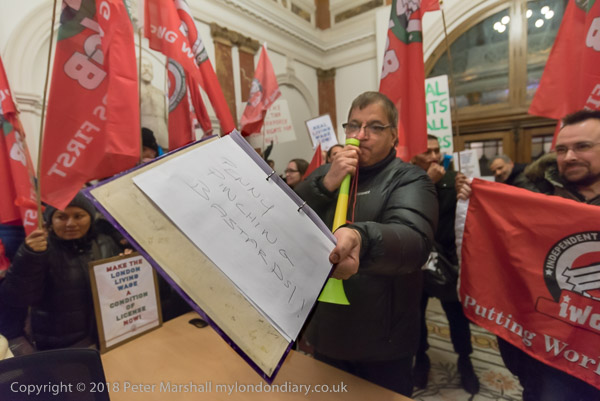
Inside the foyer the protesters waved IWGB union flags and placards, banged drums and shouted slogans but were careful to avoid any damage. THe RCM called the police who arrived after 12 minutes and ordered the protesters to leave. They did so and continued the protest on the pavement outside. It was a dark street and the blue flashing lights of the police cars made photography challenging.
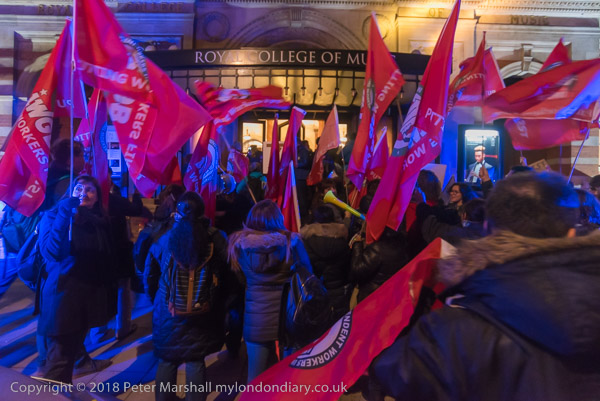
I continued to photograph for a few minutes and then decided I had taken enough pictures and little else was likely to happen. I was already very late for dinner and had a longer than expected journey home.
More pictures at Cleaners rush into Royal College of Music.
